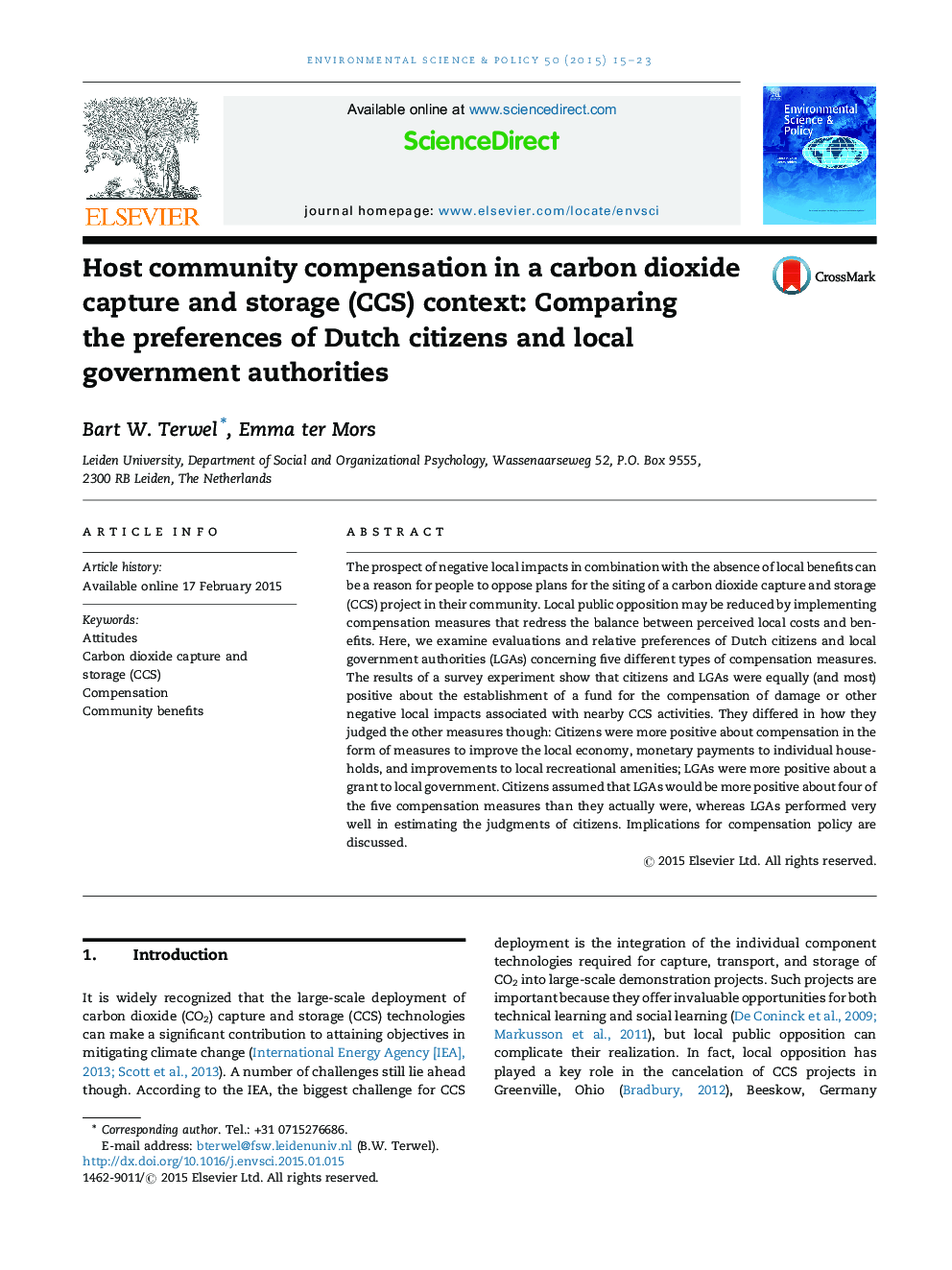| Article ID | Journal | Published Year | Pages | File Type |
|---|---|---|---|---|
| 1053478 | Environmental Science & Policy | 2015 | 9 Pages |
•Host community compensation may help to overcome local public opposition to CCS.•We systematically examined compensation preferences of Dutch citizens and LGAs.•We found differences and similarities between the preferences of citizens and LGAs.•LGAs were very accurate in estimating citizens’ evaluations and relative preferences.•A compensation fund and local economic benefits may foster local acceptance of CCS.
The prospect of negative local impacts in combination with the absence of local benefits can be a reason for people to oppose plans for the siting of a carbon dioxide capture and storage (CCS) project in their community. Local public opposition may be reduced by implementing compensation measures that redress the balance between perceived local costs and benefits. Here, we examine evaluations and relative preferences of Dutch citizens and local government authorities (LGAs) concerning five different types of compensation measures. The results of a survey experiment show that citizens and LGAs were equally (and most) positive about the establishment of a fund for the compensation of damage or other negative local impacts associated with nearby CCS activities. They differed in how they judged the other measures though: Citizens were more positive about compensation in the form of measures to improve the local economy, monetary payments to individual households, and improvements to local recreational amenities; LGAs were more positive about a grant to local government. Citizens assumed that LGAs would be more positive about four of the five compensation measures than they actually were, whereas LGAs performed very well in estimating the judgments of citizens. Implications for compensation policy are discussed.
